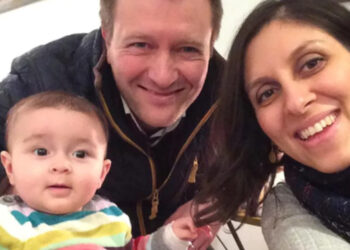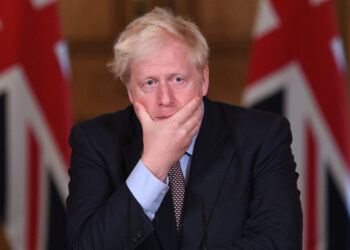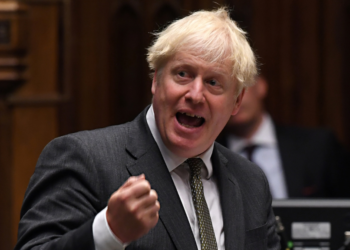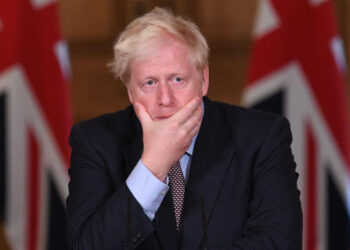The start of a new decade sees the British Labour Party at a major crossroads in its history.
The past ten years have witnessed four successive general election defeats for the party under three different leaders. As the United Kingdom embarks on the 2020s, the Conservatives have secured a further full term in office with their best result since 1987 and a parliamentary majority of 80. In achieving this, they seized some traditional Labour-voting heartlands behind its so-called “red wall.”
In terms of seats, the 2019 general election was Labour’s worst result since 1935. The party now faces a huge mountain to climb, needing to gain 124 seats to win a majority of just one at the next general election in 4 to 5 years.
With the desertion of key voters located in post-industrial communities across England’s north and midlands, Labour seems to have become an increasingly middle-class party as to its core supporters; now dominated by urban professionals, graduates working in the public sector, and students.
Comparing the 1997 (Blair’s first victory) UK election map to the 2019 is really puts things into perspective. In addition to losing Scotland to the SNP, Labour has lost almost all their rural seats. Have they doomed themselves to be the “city people party”? pic.twitter.com/vmNidODTpK
— {:Mikkel, :Högh} (@mikl) December 15, 2019
While it remains strong within the big metropolitan areas, Labour seems to have become detached from its original working-class roots in the more provincial industrial regions.
In losing touch with the aspirations of smaller provincial towns, Labour appears culturally disconnected with “left behind” voters who feel they have lost out by new technological developments, increased globalization, and immigration, and whose fears were identified by Prime Minister Boris Johnson’s focused campaign to “Get Brexit done.”
This suggests that 2019 witnessed a significant reordering of British politics. It is unclear whether Labour can reverse these trends.
Solution for Labour
So, what is the solution for Labour and its new leader? Attempts to rebrand the party after the New Labour era finally fizzled out in 2010 and have proved to be futile. Former Labour Leader Ed Miliband’s slight shift to the left was rejected amidst concerns of his leadership credibility and policy ambiguities in 2015.
An even more left-wing agenda under Jeremy Corbyn culminated in the seismic defeat of 2019. The better than expected result in 2017 gave Corbyn supporters false hope, but that was arguably more due to the disastrous campaign of Theresa May rather than to the popularity of “Corbynism.”
Different variations of the Labour offer have, therefore, all ultimately produced defeat for the party at the polls. The solution, if there is one, is not easy and features several issues.
Labour’s Next Leader and Policies
Firstly, the choice of the next leader will be critical. Leadership was certainly an Achilles heel for Labour at recent elections, and the Corbyn era proved that building up a large membership closely aligned with the leader does not automatically equate to popularity among the broader electorate.
Both Miliband and Corbyn had largely negative leadership ratings, which adversely impacted on the party’s electoral performance. Credibility and an improved leadership image are therefore critical.
However, none of the currently declared candidates appear to have significant credibility, although this may change over time. All must appeal to the radically transformed party membership since 2015, but by doing so will arguably not be able to articulate what is necessary to take the party back to a position of electoral credibility.
Yet improved leadership alone may not be enough to overcome the longer-term structural shifts within the British electorate. Policies are also crucial, and a realistic and deliverable policy agenda is required. This does not mean abandoning Labour’s traditional commitment to a more egalitarian society, but it does entail a convincing explanation as to how it can be achieved.
Many pragmatic-minded voters simply didn’t believe that the splurge of Labour’s spending commitments offered in 2019 was practically possible, costing the party further credibility and votes.
Post-Brexit Landscape
A further key challenge will be how Labour reacts to the post-Brexit landscape, and whether it can carve out an appealing and popular vision for Britain’s future outside the European Union.
Some of the left believe there is an opportunity here, which, if pitched correctly, could heal some of the divides created by the debilitating leave versus remain debate of recent years. Moreover, if the economy does go into recession after Brexit – or the promised trade deal proves illusive – then the current government will lose popularity.
We are getting Brexit done. pic.twitter.com/YmwvQItbUl
— Boris Johnson (@BorisJohnson) December 21, 2019
Labour ultimately needs to reassure voters fearful of the many rapid changes taking place in their communities. Within a globalized world riddled with security fears, Labour has failed to offer convincing assurances that it can protect the core national interests and values of British voters.
Corbyn seemed weak on national security issues, with much in his past which hostile journalists could pour over. The Labour Party in recent years has appeared hostile to a sense of Britishness, even more so Englishness, and some have questioned its sense of “patriotism.”
This is an area Labour has to address. New Labour’s progressives with their ardent pro-E.U. position, just as much as Corbyn with his “anti-westernism,” lack solutions to these problems.
Overhaul of Image and Reputation
Ultimately the Labour Party needs an overhaul of its image and reputation. Although some on the left fear a return to the pragmatic flexibility of Blairism and New Labour, the party must maintain its core beliefs but present them in a way relevant for the 21st century and the voters it needs to win over.
It must transcend both New Labour and Corbynism, seek to manage internal divisions and factionalism better, yet also maintain the best aspects of both traditions in pursuit of a clear strategy to broaden its electoral support. This is easier said than done.
After four straight defeats, Labour’s desire to win should be much more focused as it engages with the voters it has lost. Its primary goal should be about power rather than protest within this reordered political scene, exploiting the potential to offer a viable alternative government, fueled by anti-austerity and political opportunities likely to arise within post-Brexit Britain.
Disclaimer: The views and opinions expressed here are those of the author and do not necessarily reflect the editorial position of The Globe Post.






















